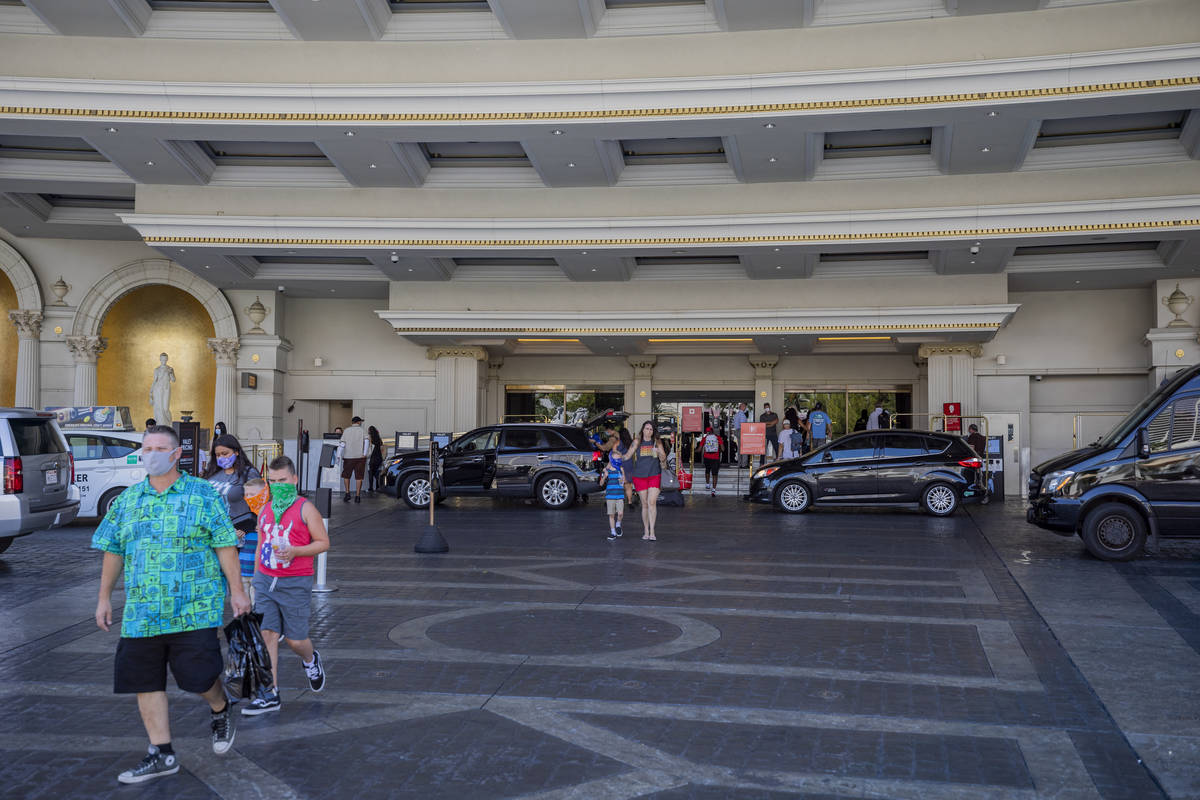
A promise of pure air might sound too good to be true, but an innovation from University of Nevada, Las Vegas students could make guests feel safe enough to return to hotels and entertainment venues, a challenge that the hospitality industry has faced since the onset of the COVID-19 pandemic.
A group of two UNLV engineering students and a University of California, Berkeley alumnus developed a virus-capturing HVAC system that can purify up to 4,000 hotel rooms at once. A standard HEPA filter, meanwhile, purifies only 400 rooms.
Promethium purifies the air by combining HEPA filtration, UVC lamps and cutting-edge photocatylists — a type of semiconductor that helps disperse and neutralize airborne impurities, including viruses. The innovation is scalable with the ability to clean the air in spaces as small as an airplane to as large as a stadium or hotel, and the team is working to bring their technology to market by this spring.
The team is led by UNLV engineering students Xavier Morgan-Lange and Devon Scheg and UC Berkeley graduate Daniel Werth. Their invention took the top spot in UNLV’s $1 million Lee Prize competition, which sought to discover and fund innovative technologies that would make the hospitality, travel, casino, sports & entertainment and food and beverage industries safer for both employees and guests.
“We have been working on something that quite literally addresses the issues we are facing because of the coronavirus,” Morgan-Lange said. “That has lit a fire under us to make this happen. The time is now to fulfill our mission of helping people.”
In the past two years, the Promethium team has expanded to include data analyst Guglielmo Panelli, who graduated from the University of Nevada, Reno in the spring; electrical engineering consultant James Rowley, who is expected to graduate from the University of Arizona this fall; and geochemist and current UNLV student Grace Martin. In 2019, Promethium received an I-Corp grant which allowed them to begin prototyping of their air filtration system. In May 2020, the team received a $100,000 investment that allowed the team of three to work on the project full time.
Entrepreneurship was not the plan for the original Promethium trio, but as the idea became a reality so did the opportunity to start a business.
“I always had dreams about starting a business, but it we never had a solid idea, something that was truly marketable until now,” Werth said.
Promethium will receive a total of $250,000 of the Lee Prize — $125,000 immediately, and the other half once they match funding through other investors. Demo Day allowed winners a platform to meet other investors and help them secure the money needed to accomplish their goals.
The competition emerged after Greg and Ernest Lee, trustees of the Ted and Doris Lee Family Foundation, together with UNLV’s Lee Business School Troesh Center for Entrepreneurship and Innovation, saw a way to help spur recovery offering a prize to companies developing solutions that can come to market within a year and make it safer for guests to return to the hospitality and entertainment industries.
In April, the Lee Prize for Innovation and Entrepreneurship launched, ultimately receiving more than 250 applications from 32 states and nine countries.
In addition to Promethium, four other entrants won the Lee Prize: GoodWRX, an app-based work scheduling software that simplifies job sharing; Hotel Data Cloud, a global hotel content distribution database that gives hotels control over listings on any booking channel; Maidbot, cleaning robots that also provide key data to management, and Purling, for one-time-use recyclable bedsheets.